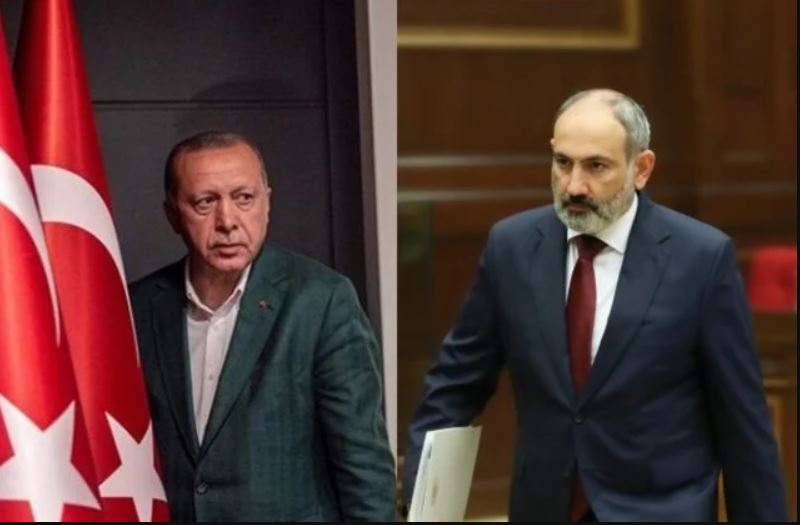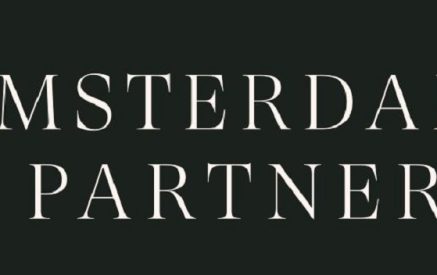On July 1, the special representatives dealing with the process of normalization of relations between Armenia and Turkey, Deputy Speaker of the National Assembly of Armenia Ruben Rubinyan and Ambassador Serdar Kilic held the fourth meeting in Vienna. Just 3 days before the fourth meeting of the special representatives of Armenia and Turkey, official Ankara again spoke about the “Zangezur Corridor.”
Turkish Foreign Minister Mevlut Cavusoglu said at the meeting of Turkey-Azerbaijan-Kazakhstan Foreign Ministers held in Baku. “We support the (opening) of the Zangezur Corridor and want it to open minutes earlier.”
And official Yerevan was preparing to go to the fourth meeting with the representative of Turkey, noting that “until this moment there is not much progress,” said the special representative of the settlement process, Deputy Speaker of the RA NA, Ruben Rubinyan. On July 1, despite the record of the lack of progress on the part of the Armenian side, after the fourth meeting of Ruben Rubinyan and Serdar Kilic, it became known that the parties agreed to provide citizens of third countries visiting Armenia and Turkey the opportunity to cross the Armenia-Turkey land border, respectively, in the shortest possible time and decided to start the necessary processes in that direction. We learned from the press release of the RA Foreign Ministry that the negotiators agreed to start the implementation of direct air cargo transportation between Armenia and Turkey as soon as possible and decided to start the necessary processes in that direction.
“In addition, other possible concrete steps that can be taken to achieve the ultimate goal of full settlement between the two countries were discussed. Finally, the parties have again emphasized their agreement to continue the settlement process without preconditions,” the statement said. The Ministry of Foreign Affairs of Turkey also made a similar statement. Thus, the Armenian-Turkish border will be opened for the citizens of third countries. Apparently, certain diplomatic pressures on the Turkish side have been released in order to ensure some progress in the process with Armenia. Until the last meeting between Rubinyan and Kilic, at least there were no grounds for optimism, moreover, the process had somewhat slowed down and became even more uncertain.
Read also
However, it is noteworthy that the latest agreement between Armenia and Turkey was recorded after the telephone conversation between the presidents of the USA and Turkey and the NATO summit. Parallel to the efforts of the West to speed up the Armenian-Turkish process, a window of opportunity has opened for the Armenian side from a diplomatic point of view, in terms of promoting the Armenian interest and strengthening its positions. Another question is how much the current authorities take advantage of that window of opportunity. When evaluating the results of the last meeting between Rubinyan and Kilic, one must be careful, because it is known that Ankara openly connects this process with the results to be recorded in the Armenia-Azerbaijan peace process. The authorities of Turkey have publicly announced several times that, in fact, they are coordinating the process of regulating Armenia-Turkey relations with Baku.
And this means, in case of any “dissatisfaction” with Aliyev, Ankara will take a step back, or rather, it will use additional pressure tools on the Armenian side. In this regard, the Armenian side has already found itself in a tense Turkish-Azerbaijani trap, in which both Ankara and Baku, as well as other interested parties, will expect concessions from official Yerevan.
Therefore, no matter how much the last Rubinyan-Kilic meeting is appreciated as a “step forward,” we should not forget and ignore the dangers surrounding Armenia. First, Ankara, like Baku, will clearly expect and demand from Yerevan to forget about the prospect of negotiations on the Nagorno-Karabakh problem within the framework of the OSCE Minsk Group.
Such “instructions” have already been issued from Baku. Next is official Yerevan’s stance on the Armenian Genocide recognition process and Turkey’s recognition, which is important for Ankara. It is not known what “red lines” official Yerevan has defined in the negotiations with Ankara, what demands it has presented, which the Turkish side must first implement.
Next, providing a corridor to Azerbaijan and recognizing Nagorno Karabakh as part of Azerbaijan are the goals of Baku and Ankara. At the same time, it is obvious that the dictating party in the Armenia-Turkey settlement process is Ankara, and regardless of the fact that there will be calls from the West to the Turkish authorities to speed up the process, it does not follow that Turkey will not use any “pretext” for the purpose of aborting the entire process.
And for now, let’s note that the last Rubinyan-Kilic meeting recorded a small progress in the process of normalization of Armenia-Turkey relations, but these are only statements made at the level of statements, which means that they can remain on paper.
Emma GABRIELYAN






















































